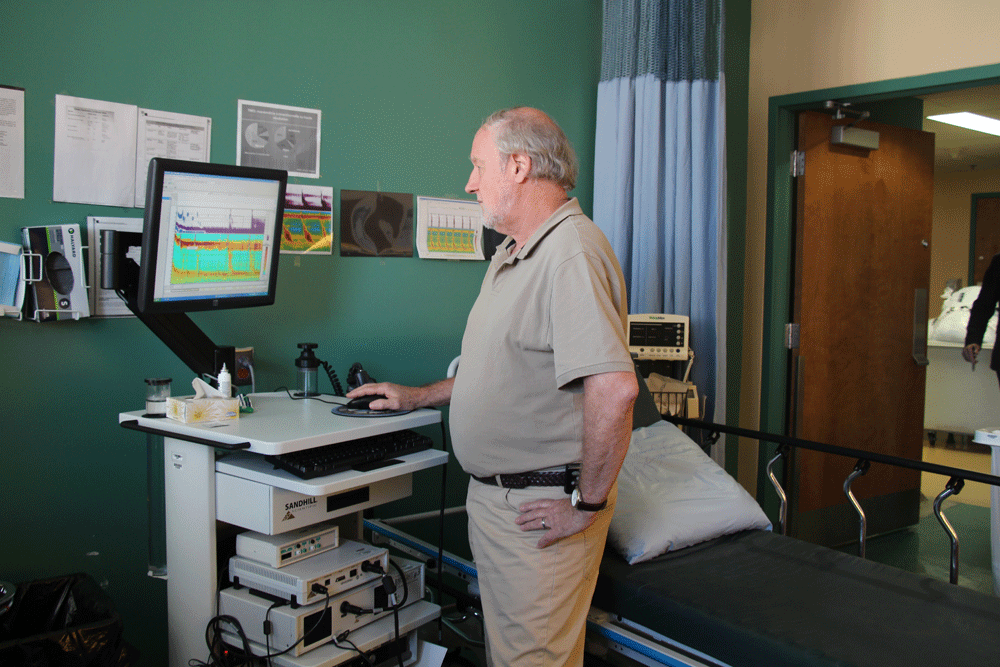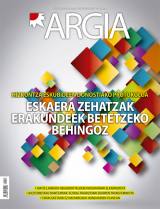"We have a second brain in our gut, all in contact with the rest."
- Intestinal bacteria are occupying more and more space in medicine. Although much remains to be discovered, experts have a knowledge: that healthy people and diseases have a diversified and balanced intestinal flora. They are also aware of the existence of permanent links between the intestine and the brain. According to Quebequés physician Pierre Poitras, who observes this intestinal flora, they have a very interesting door there.

Intestinal bacteria are essential to ensure a good complement.
Thinking that bacteria can do well is something new. The technological revolution and the evolution of thought that has taken place in recent years have led to the conclusion of this assurance. Some leading labs have begun to discover these bacteria. Now we know: the more diversified the intestinal flora, the more protected we will be from diseases. This diversity is linked to the way we eat. We started to associate some diseases with the nature of the microbiota [set of mycoorganisms].
How?
Some experiences of intestinal flora manipulation are surprising. For example, we observed that the microbiota of some genetically obese mice differs from that of some non-obese mice. More than that, the microbiota of the obese applies to others and becomes obese! The same is true of depressed mice and non-depressed mice. They've done the experience with some people who are in depression and the results have been positive. Of course, more experience is needed to check the results. Therefore, the adaptation of the intestine also produces changes outside the intestine. The notion of a second brain is also linked to this.
Can you explain that idea?
With the microbiota we observed that the intestine performs other functions. But before we researched the intestinal flora, we already used this notion. We owe it to New York Professor Michael Gershon, who usually uses this idea to warn that we have an important neurological network in our gut. The intestine will continue to work even if it is taken from your body and given in a container. We love to know that we only have 5% serotonin in the brain and almost everything else in the gut. Remedies against depression are constituted of this transmitter of neuro. So, yes, we have a second brain in the gut that comes into contact with the rest.
How is the connection between the two established?
There are nerves sliding around. The best known nerve is the bago, which 30-40 years ago was cut to cure the ulcer. After the cut, the stomach secreted 50% less acid, so the patient was cured. The connection between the two is clear in times of stress, digestive changes occur, either lower or in the stomach. What we've learned over the last 20 years is that some nerves go from the bottom to the top.
Food is of great importance.
Of course, these bacteria should be well-fed. For example, fibres are needed. But we're still doing research. I won't tell her that by changing her diet, I'll cure her depression. But we're not that far away. With probiotics, for example, we cure some diseases by adding some bacteria. Another example is excrement transplantation.
The passing of the fingernails from one person to another, that is, the poop.
The idea is that the intestinal flora of a healthy person is going to be modified and improved by giving a sick person. Clostridium difficile works well, the cure rate is 90%! A colonoscopy spreads through the large intestine or sends it to the intestine with a tube.
There is a risk of another illness.
That's the problem. Most of the time, we use the yolk of one of the family members to reduce the risk of falling. Naturally, we will not use the intestinal flora of a patient. But it's not simple. What is the healthy gut flora? We have 14 billion bacteria in our gut. You can't tell if everyone is healthy or not. But in the end, it's like taking probiotics, except here we have billions of bacteria. Most of the work is in the hands of the microbiologist, who has to do all the tests.
What kind of disease is cured like this?
We're at the beginning, we're continuing to the extent of exploration. Experience with patients with ulcerative colitis has shown the existence of super-donors with intestinal flora greater than 90%. It's normal, knowing that everyone has their own gut microbiota. Accommodation, food, genetic origin... The microbiota depends on many elements.
Is it the medicine of the future?
It may be, but the challenge is huge. It's a great novelty for a scientist. Today you can't analyze your microbiota anywhere, but I think in ten years it will be possible. In Canada, an investigation begins: For three or four years, 2,000 healthy people, 2,000 others with Crohn's disease, 2,000 with ulcerative colitis, and 2,000 others with irritable bowel syndrome will analyze the intestinal flora of those affected. The research will be carried out with support of $40 million. It's extraordinary! So, yes, I think we'll look more and more at the gut flora. New doors are being opened.
“Gastroenterologoa naizen aldetik hesteari begira nago. Heste-mikrobiota deitzen diogu hestean dauden mikroorganismoen multzoari eta egia erran, geroz eta garrantzi handiagoa hartzen ari dira. Milaka bakterio dira bertan. Bakterio hitza entzun eta lanjerraz, eritasunaz pentsatu ohi dugu. Baina bakterio onak ere badira. Liluragarria da hestean gertatzen dena, deskubritzen ari garen mundu horrek harritzen nau”.
Punto Bobo liburuaren irakurketan murgilduta, Itxaso Martin Zapirain egilearen Eromena, Azpimemoria eta Isiltasunak Idazten ikerketa lanean sentitu nuen egiazkotasun eta maila etikoarekin egin dut berriz ere topo. Eta hortaz, hara bueltatu. “Oihu izateko jaio zen isiltasun... [+]
La bajona kolektibo kide Heiko Elbirak salatu du psikiatriak zisheteroarautik aldentzen diren erotikak kontrolatu nahi dituela.
Down sindromea eragiten duen 21. kromosomaren kopia gehigarria ezabatzea lortu dute ikertzaile japoniar batzuek laborategiko giza zeluletan. Erabilera klinikotik urrun dagoen arren, sindrome hori tratatzeko aukera berri bat ireki du esperimentu honek. PNAS Nexus aldizkarian eman... [+]
Washington (EE.UU. ), 1807. The US Constitution banned transatlantic slave trade. This does not mean that slavery has been abolished, but that the main source of the slaves has been interrupted. Thus, slave women became the only way to “produce” new slaves.
So in 1845, in... [+]
What blew me a lot is the way some doctors talk to the patient. They talk to us about pain as if we were children. As I have had two kidney transplants, I know what I mean: among other things, I have had a tube inside my penis. Because of the anesthesia, I didn't feel how I got... [+]
Today I have come to start with my words.
Four years!
I've taken four years to get my life back.
Four years also lived to flee the prison.
Four years… In silence… Just… Leaving aside the life of the past… To understand the functioning of my different mind and to... [+]
Lack of good doctors for a high middle grade policy. This policy has ensured that very few young people have reached the medical career and the MIR has further removed people from that career.
And there are few Basque doctors because the knowledge of Euskera in this profession... [+]
Rainy red mornings, red blondes. Little with the Aramaio train and soon wind turbines will be installed, destroying the mountains. The wind of the river, from Vitoria, leads us along the same path: the river. Infrastructures yes, all we want, but not socio-health care... [+]




















